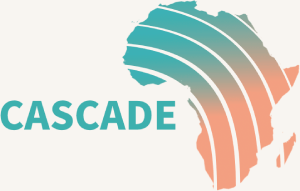Sep 04 2025
/
Reflections from the Second Cascading Climate and Health Risks in African Cities Learning Lab in Kampala

CASCADE—Cascading Climate and Health Risks in African Cities—works across five cities: Kampala, Harare, Accra, Johannesburg, and Cape Town. Launched in 2023, it brings together researchers, city actors, and communities to better understand climate-health risks in African cities and co-produce locally grounded, practical responses.
For CASCADE, City Learning Labs are powerful, inclusive, and iterative engagements designed to respond to and build an understanding of complex urban challenges through collaborative exploration and transdisciplinary problem-solving with diverse groups of participants.
This, CASCADE’s second City Learning Lab in Kampala, was built on the foundations laid during the first Lab in 2024, which focused on mapping major climate-health challenges—from flood events and urban malaria to air pollution and institutional coordination. The 2025 Lab deepened that conversation, exploring how these risks unfold across time, policy, and lived experience—and what forms of action are already emerging on the ground.

In early July 2025, the CASCADE team returned to Kampala for the two-day Lab—an opportunity for exchange, reflection, and connection. Held in a green and peaceful setting just outside the city, the Lab created space to reflect on the past, assess the present, and imagine new pathways for climate and health action in Kampala.
The Lab brought together a diverse mix of participants, including community leaders, youth organisations, government ministries and departments, NGOs, researchers, and city authorities. Through storytelling, research presentations, timeline mapping, and group dialogue, the Lab invited participants to reflect on the risks Kampala faces—and how communities and institutions are already responding.
Participants began by tracing key climate-health events in Kampala from 1984 to the present. To highlight the complex and contextual dynamics of the climate and health timeline, aspects of social processes were included, adding depth to a systematic understanding of the story. These stories offered important insights into how flooding, food safety, disease outbreaks, and heat are experienced at the community level. Ms. Zam Byakiika of the National Slum Dwellers Federation of Uganda shared how flooding in Bwaise affects access to clean water and food, putting families—especially women—at constant risk. These lived accounts helped frame the systemic nature of the challenges being explored.
The group then mapped how national and city-level policies have shaped space for action on climate and health. This exercise highlighted key milestones but also raised questions about the distance between policy and practice, as well as the role of informal networks and community systems in shaping responses on the ground.

A highlight of Day 2 was the presentation of early-stage research by five Kampala-based CASCADE fellows. Their work covered a wide range of topics—from the health impacts of air pollution and heat to antimicrobial resistance in hospital wastewater and malaria risks in informal settlements. The findings sparked discussion on how research can better inform action, and how solutions must be locally rooted and context-aware. As one participant noted, “Urban heat doesn’t sound dangerous until you understand how it worsens hypertension or chronic disease for those already vulnerable.”
The Lab also surfaced shared priorities, captured in a 12-point action list spanning mobile health delivery, public awareness, waste management, clean energy, and improved community data systems. But beyond the content, it was the spirit of collaboration that stood out. Participants repeatedly emphasized the value of slowing down, listening, and co-producing ideas together—across disciplines, sectors, and lived experience.
These Learning Labs help us step back from our day-to-day work and see the bigger picture,” said Dr. Stephen Okoboi, CASCADE Co-PI. “They give us space to listen to each other, reflect on what’s working, and imagine better ways of responding together.

Our Learning Labs aren’t just events—they’re ongoing processes rooted in trust, time, and listening,” added Dr. Chris Jack, CASCADE Lead PI. “If we want to support real change, we have to understand how decisions are made—and that often means working with informal networks, civil society, and community voices.
The Lab closed with several institutions, including Kampala Capital City Authority, Uganda Red Cross, and local NGOs, committing to take action forward. It was a powerful reminder that the work of resilience doesn’t happen in isolation, but through relationships, shared insight, and continued engagement.
As the CASCADE journey continues, we look forward to expanding and building long-term, trust-based partnerships that centre on local knowledge, lived realities, and collaborative learning within the CASCADE process.
Author: Alacia Armstrong, Communications Lead, CASCADE.
August 2025
